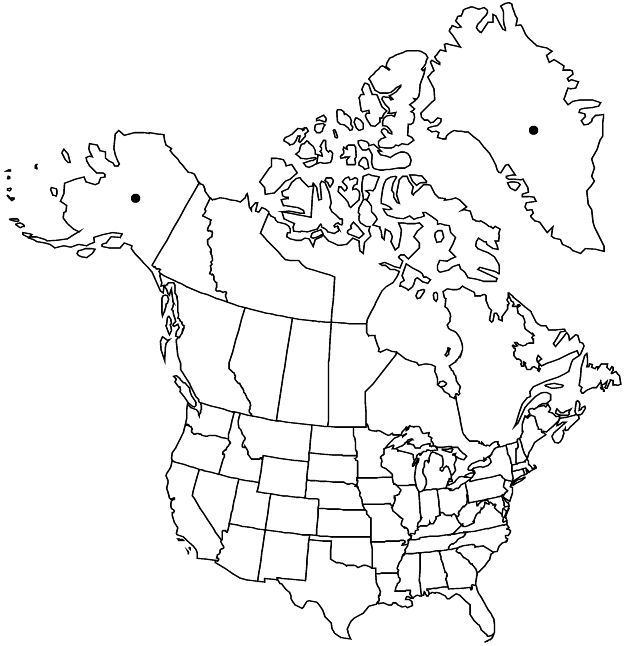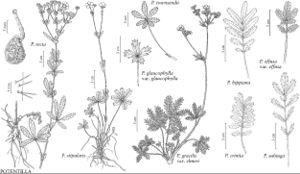Difference between revisions of "Potentilla stipularis"
Sp. Pl. 1: 498. 1753.
FNA>Volume Importer |
imported>Volume Importer |
||
| (2 intermediate revisions by 2 users not shown) | |||
| Line 55: | Line 55: | ||
|publication year=1753 | |publication year=1753 | ||
|special status=Illustrated | |special status=Illustrated | ||
| − | |source xml=https:// | + | |source xml=https://bitbucket.org/aafc-mbb/fna-data-curation/src/2e0870ddd59836b60bcf96646a41e87ea5a5943a/coarse_grained_fna_xml/V9/V9_212.xml |
|subfamily=Rosaceae subfam. Rosoideae | |subfamily=Rosaceae subfam. Rosoideae | ||
|tribe=Rosaceae tribe Potentilleae | |tribe=Rosaceae tribe Potentilleae | ||
Latest revision as of 22:55, 5 November 2020
Glands mostly absent. Stems (0.2–)1–2.5(–3.5) dm. Basal leaves 3–7(–10) cm; petiole 2–5(–7.5) cm, hairs absent or sparse, appressed to spreading, 0.5–0.8 mm, stiff, glands absent or nearly so; leaflets 7–11, central one oblanceolate-elliptic, 1–2(–3) × 0.3–0.8 cm, distal 1/4 or less of margin incised less than 1/10(–1/4) to midvein, teeth 1–2(–5) per side, surfaces similar, abaxial pale green to reddish, often glaucous, hairs absent or sparse to common on primary veins, appressed to ascending, 0.6–1 mm, stiff, adaxial green or reddish, glabrous or nearly so. Cauline leaves 1–3; stipules fused with all or most of petiole, free portion shorter than fused portion. Inflorescences 2–5-flowered. Pedicels 1–3 cm (proximalmost to 6 cm). Flowers: epicalyx bractlets lanceolate to narrowly lanceolate, 3–5 × 0.7–1(–1.5) mm; hypanthium 2.5–3 mm diam.; sepals 4–6 mm, apex acute; petals (4–)6–8 × 4–6 mm; filaments 1.6–2 mm, anthers 0.4–0.6 mm; carpels 40–50, styles 0.7–0.9 mm. Achenes 1.1–1.3 mm, smooth. 2n = 28 (Eurasia).
Phenology: Flowering summer.
Habitat: Herb meadows, alluvial meadows and flats, open shrub thickets, Salix-Dryas tundra
Elevation: 10–600 m
Distribution

Greenland, Alaska, Eurasia.
Discussion
The occurrences of Potentilla stipularis in Alaska are a continuation of the range from Asia. The six known occurrences in eastern and northeastern Greenland are disjunct (A. E. Porsild 1964) and were assigned to var. groenlandica by Sørensen, differing from Asian and Alaskan counterparts mainly in quantitative features: 9–11 leaflets, 7–11 teeth per leaflet, and not conspicuously glaucous (G. Halliday, pers. comm.). Here var. groenlandica is considered a high-arctic ecotype that provisionally is not accepted taxonomically.
Selected References
None.
